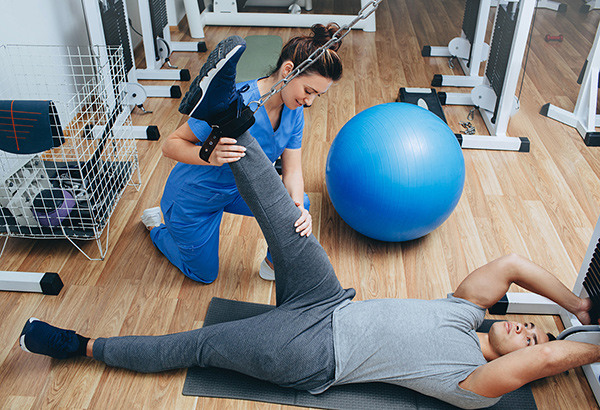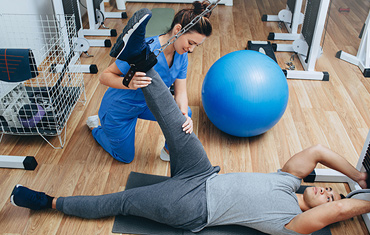
October marks Physical Therapy Month to highlight the essential role Physical Therapist plays in helping athletes and weekend warriors recover and thrive after a sports related injury. Sports injuries can be a major setback for athletes, impacting both their physical health and mental well-being. Each year, more than 775,000 children aged 14 and younger are treated in hospital emergency rooms for sports-related injuries in the U.S.¹ Physical therapy is vital to recovery, helping athletes rebuild strength, restore mobility, and regain confidence. As a surgeon, I have seen firsthand how physical therapy accelerates healing and empowers athletes to return stronger.
Accelerating Healing and Reducing Pain
One of the primary benefits of physical therapy is its ability to accelerate the healing process and reduce pain. Through targeted exercises and manual therapy techniques, physical therapists help to improve blood circulation, reduce inflammation, and promote tissue repair. This not only speeds up recovery but also alleviates pain, allowing athletes to return to their sport more quickly and comfortably.
Restoring Mobility and Function
After a sports injury, restoring mobility and function is essential for an athlete's return to peak performance. Physical therapists design personalized rehabilitation programs that focus on improving flexibility, strength, and coordination. These programs often include a combination of stretching, strengthening exercises, and functional training tailored to the specific needs of the athlete. By addressing these key areas, physical therapy ensures that athletes regain their full range of motion and functional capabilities.
Preventing Re-injury
Preventing re-injury is a critical aspect of sports injury recovery. Studies show that nearly 18% of athletes sustain re-injury upon returning to high-risk sports.² Physical therapists educate athletes on proper techniques, body mechanics, and injury prevention strategies. They also identify and address any underlying weaknesses or imbalances that may have contributed to the initial injury. By doing so, physical therapy not only aids in recovery but also helps athletes build resilience and reduce the risk of future injuries.
Enhancing Mental Resilience
The psychological impact of a sports injury can be profound, often leading to feelings of frustration and anxiety. Physical therapy provides a structured and supportive environment that helps athletes stay motivated and focused on their recovery goals. The progress made during physical therapy sessions can boost an athlete's confidence and mental resilience, which are crucial for a successful return to sports.
Don't let a sports injury hold you back from achieving your full potential. Dr. Geoffrey Van Thiel, Sports Medicine Specialist, can guide you through every step of your recovery journey. With his expertise and personalized approach, you can regain your strength, mobility, and confidence. Book an appointment with us today!
AUTHOR: Geoffrey Van Thiel, MD is a board-certified orthopedic surgeon specializing in sports medicine treatments of the hip, knee, and shoulder, with a focus on compassionate cutting edge care. Dr. Van Thiel’s commitment to athletics and an active lifestyle is evident in both his personal belief that activity leads to better health, and his involvement with the Chicago Blackhawks Medical Network, AHL Rockford IceHogs and US National Soccer Teams.





